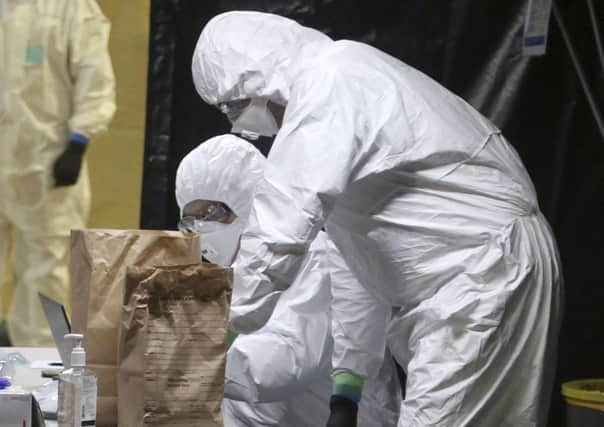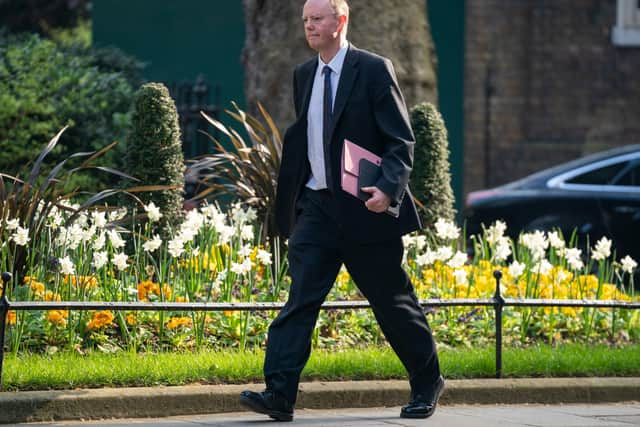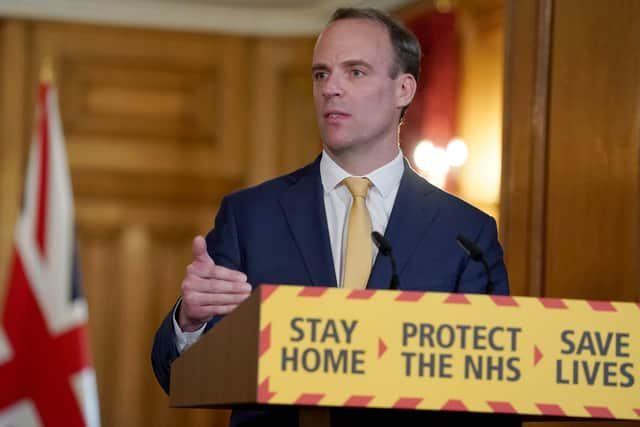Why I trust our pandemic experts over the WHO and EU – Bill Carmichael


The theory goes that there are some global problems, such as climate change, world-wide financial crashes, cross-border migration crises and medical pandemics, that are simply too big and too complex for the puny nation states to deal with.
What is required are massive global organisations operating at supra-national level to solve the biggest problems on a world-wide scale.


Advertisement
Hide AdAdvertisement
Hide AdSo, since the end of the Second World War, a large number of these trans-national organisations have shot up like nettles on an untended allotment, for example the United Nations, the World Health Organisation, the European Union and numerous others.
They grow into enormous bureaucracies, sucking up huge amounts of taxpayers’ cash. They base themselves in fabulously opulent headquarters in some of the world’s most fashionable and expensive cities, and they pay their senior executives lottery jackpot salaries.
Which might be all worthwhile if they actually managed to do the job they were specifically designed for. They may be remote from the lives of the ordinary folk who have to pick up the bill for these organisations, but at least they should have the clout to get things done.
That’s the theory anyway, but in reality, in times of trouble, from the financial crash of 2008, through the migration crisis of 2015 and onto the current coronavirus pandemic, all of these organisations have proved to be about as much use as an inflatable dartboard.


Advertisement
Hide AdAdvertisement
Hide AdWhen the big problems have come along – precisely the sort of thing these organisations were created for – they have been found to be totally lacking.
Take, for example, the Geneva-based World Health Organisation, which has woefully failed to provide any kind of leadership during the coronavirus crisis. Instead of robustly challenging the lies and obfuscation of the Chinese government about the scale of the outbreak, the WHO became little more than a mouthpiece for the regime’s propaganda. So cosy was the relationship that the Japanese Deputy Prime Minister described the WHO as “the Chinese Health Organisation”.
The WHO also decided to shut out advice from Taiwan, one of the countries with the most effective response to Covid-19, because recognising the vital contribution of the small, self-governing island would upset the Chinese government which claims it as part of its territory.
The resulting delays in the response to the virus outbreak probably cost thousands of casualties, but the WHO appears to have decided that political game playing was more important than saving lives.
Advertisement
Hide AdAdvertisement
Hide AdNo wonder US President Donald Trump announced this week that he was seriously considering withholding funding from the WHO, adding: “The WHO really blew it.”
The response by the EU was equally woeful. Italy, still reeling from the 2008 crash and from bearing the brunt of the migration crisis, took the worst hit in Europe from Covid-19. But far from showing the much vaunted European “solidarity” the EU, in the initial phases at least, failed to offer much practical help. In fact Germany and France restricted exports to Italy of medical supplies and protective equipment.
While Russia and China were flying in aid to Italy, the EU’s highest court, the European Court of Justice, hit Italians with a £6.58m fine for breaking state aid rules. Talk about kicking someone when they are down.
Italians are unlikely to forget the harsh treatment that they received during their time of greatest need. Things have got so bad in the EU that this week the organisation’s top scientist, Mauro Ferrari, who was appointed as President of the European Research Council in January, announced his resignation.
Advertisement
Hide AdAdvertisement
Hide AdHe said he was a “fervent supporter” of the EU when he took the job, but what he has seen in the last three months had completely changed his views.
What these examples show is that the more remote governance is from the people it is supposed to serve, the more corrupt and inefficient it becomes. Good governance is always accountable and closer to the people. And if you ask me who we should trust, I would back our own government, supported by independent scientific advice, over the WHO and EU every time.
Editor’s note: first and foremost - and rarely have I written down these words with more sincerity - I hope this finds you well.
Almost certainly you are here because you value the quality and the integrity of the journalism produced by The Yorkshire Post’s journalists - almost all of which live alongside you in Yorkshire, spending the wages they earn with Yorkshire businesses - who last year took this title to the industry watchdog’s Most Trusted Newspaper in Britain accolade.
Advertisement
Hide AdAdvertisement
Hide AdAnd that is why I must make an urgent request of you: as advertising revenue declines, your support becomes evermore crucial to the maintenance of the journalistic standards expected of The Yorkshire Post. If you can, safely, please buy a paper or take up a subscription. We want to continue to make you proud of Yorkshire’s National Newspaper but we are going to need your help.
Postal subscription copies can be ordered by calling 0330 4030066 or by emailing [email protected]. Vouchers, to be exchanged at retail sales outlets - our newsagents need you, too - can be subscribed to by contacting subscriptions on 0330 1235950 or by visiting www.localsubsplus.co.uk where you should select The Yorkshire Post from the list of titles available.
If you want to help right now, download our tablet app from the App / Play Stores. Every contribution you make helps to provide this county with the best regional journalism in the country.
Sincerely. Thank you.
James Mitchinson
Editor
